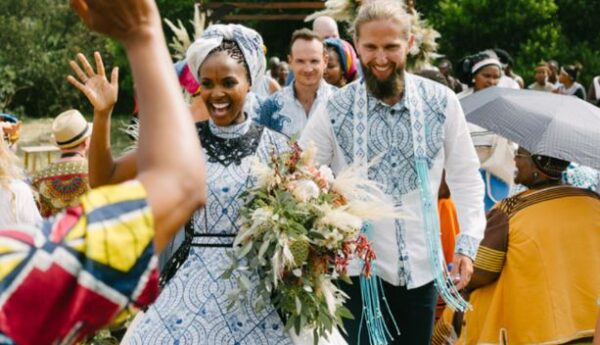Mixed cultural backgrounds weddings are popular, especially in a diverse country like South Africa.
Getting married is more than just about the bride and groom; it’s about bringing two families together.
If you come from different cultural backgrounds, it’s important to ensure that all cultures are represented at the wedding ceremony.
Wedding expert Chris Bajda from Groomsday has revealed his top tips for making a mixed-cultural wedding work smoothly and creating unforgettable moments along the way.
1. Go for two ceremonies
Most weddings in South Africa have part one and part two. This is to ensure that both sides (the bride and groom) get to practice their culture and traditions without any compromise.
“If your budget allows, two ceremonies can be ideal,” says Bajda. “It gives everyone a chance to enjoy what’s familiar, and experience something new.”
2. Make it bilingual
It’s always nice when everyone speaks their home language. That way, guests get to experience the beauty of diverse cultures and also learn new languages.
“Having someone who can switch between languages makes sure everyone feels like part of the celebration. It’s a thoughtful touch that brings people closer,” Bajda said.
3. Show both cultures in your outfits
What you wear can tell the story of your shared culture. More couples are switching up their outfits to represent both backgrounds, like a white wedding gown for one part of the day, and traditional attire for another.
“Multicultural couples are finding fun ways to blend their fashion, like adding cultural embroidery to a modern dress or incorporating multiple colour schemes,” said Bajda. “These little touches are a beautiful way to honour both families.”
4. Get both families involved
Hold a meeting with both families and plan the wedding preparations. That way, you will also discuss the traditions that need to be performed and how you can blend them.
“When families feel respected and heard, they’re more likely to embrace new and unfamiliar traditions,” explains Bajda.














